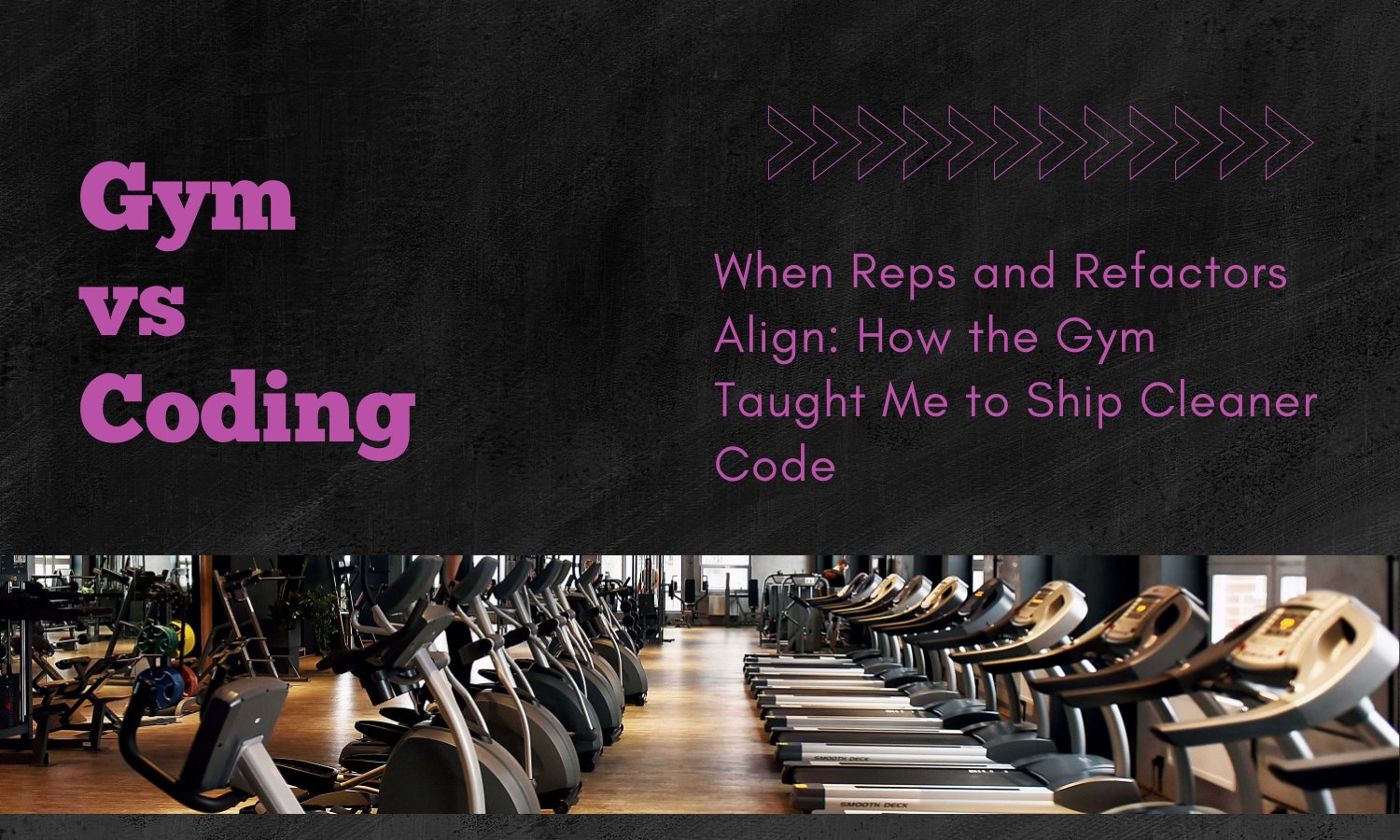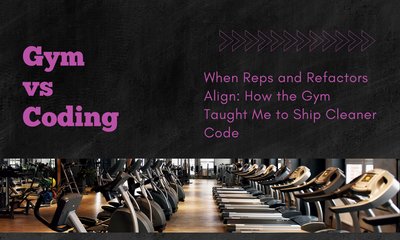When Reps and Refactors Align: How the Gym Taught Me to Ship Cleaner Code
By JoeVu, at: Nov. 15, 2025, 3:45 p.m.
Estimated Reading Time: __READING_TIME__ minutes


It’s easy to think of coding as purely a mental game: sit, type, debug, repeat. But what if the secret to writing cleaner code, shipping more elegant features, and preventing burnout doesn’t just live inside our IDE, what if it also lives in our daily habits, like showing up at the gym?
The Wake-Up Call
When I first joined Glinteco as a developer, my workflow was anything but optimized. I’d debug late into the night, posture wrecked, back aching, sustained only by lukewarm coffee. My code shipped, but it was messy: commits lacked elegance, performance was average, and reviews often flagged preventable mistakes.
Sound familiar?
That’s when I decided to change. I committed to hitting the gym three times a week, focusing on compound lifts - squats, deadlifts, bench presses - plus mobility work and proper rest. At first, it was about fixing my back pain. But then I noticed something else: my focus improved, energy levels surged, and I made fewer mistakes at work.
It turned out the lessons I was learning under the barbell applied directly to writing better software.
Gym Lessons for Cleaner Code
Progressive Overload → Seek the Challenge
In lifting, progressive overload means adding a little more weight each time. In coding, it means resisting the temptation of the “quick fix” and instead investing in proper refactors. Each harder task builds the foundation for a healthier codebase.
Form Over Volume → Quality Over Speed
Ten squats with perfect form beat twenty sloppy ones every time. Likewise, pushing features fast but sloppy builds technical debt. Writing clean, testable, maintainable code is the true long-term productivity hack.
Rest & Recovery → Breaks Are Part of the Process
Muscles grow in recovery, not in the lift. The same applies to your brain. Breaks, peer reviews, and pair programming sessions aren’t wasted time - they’re where clarity, insights, and stronger solutions emerge.
Quick Reference Table
| Gym Principle | Coding Equivalent | Result |
|---|---|---|
| Progressive Overload | Tackle harder refactors instead of quick fixes | Stronger, maintainable codebase |
| Form Over Volume | Prioritize clean commits over rushed features | Less technical debt, smoother scaling |
| Rest & Recovery | Breaks, reviews, pair programming | Better focus, fewer bugs, reduced burnout |
The Results
Applying these principles changed my workflow completely. My commits got cleaner, bugs dropped, collaboration improved, and the mental “fog” of burnout started to clear. Coding felt less like firefighting and more like craftsmanship.
The Takeaway
From the desk to the deadlift platform, I learned one truth: physical fitness fuels mental clarity, and mental clarity fuels better code.
At Glinteco, we believe balanced developers build more sustainable systems. Investing in our health isn’t a side hobby as it’s part of building resilient teams and long-lasting software.
So, the next time you’re stuck on a tricky bug, maybe the solution isn’t another late night at the keyboard. Maybe it’s a workout, a walk, or just a strategic pause. Your code and your back will thank you.


![[One Package Per Day] Django-sesame](/media/filer_public_thumbnails/filer_public/13/42/1342a42b-fc4c-4b87-8320-6b0dc1a0ef84/django-sesame_magic_link.png__400x240_q85_crop_subsampling-2_upscale.jpg)
![[TIPS] Python Mixins - LoggingMixin](/media/filer_public_thumbnails/filer_public/2a/7a/2a7a2503-b421-4058-8a7d-d945f7b112c6/python_mixins_-_loggingmixin.png__400x240_crop_subsampling-2_upscale.png)

